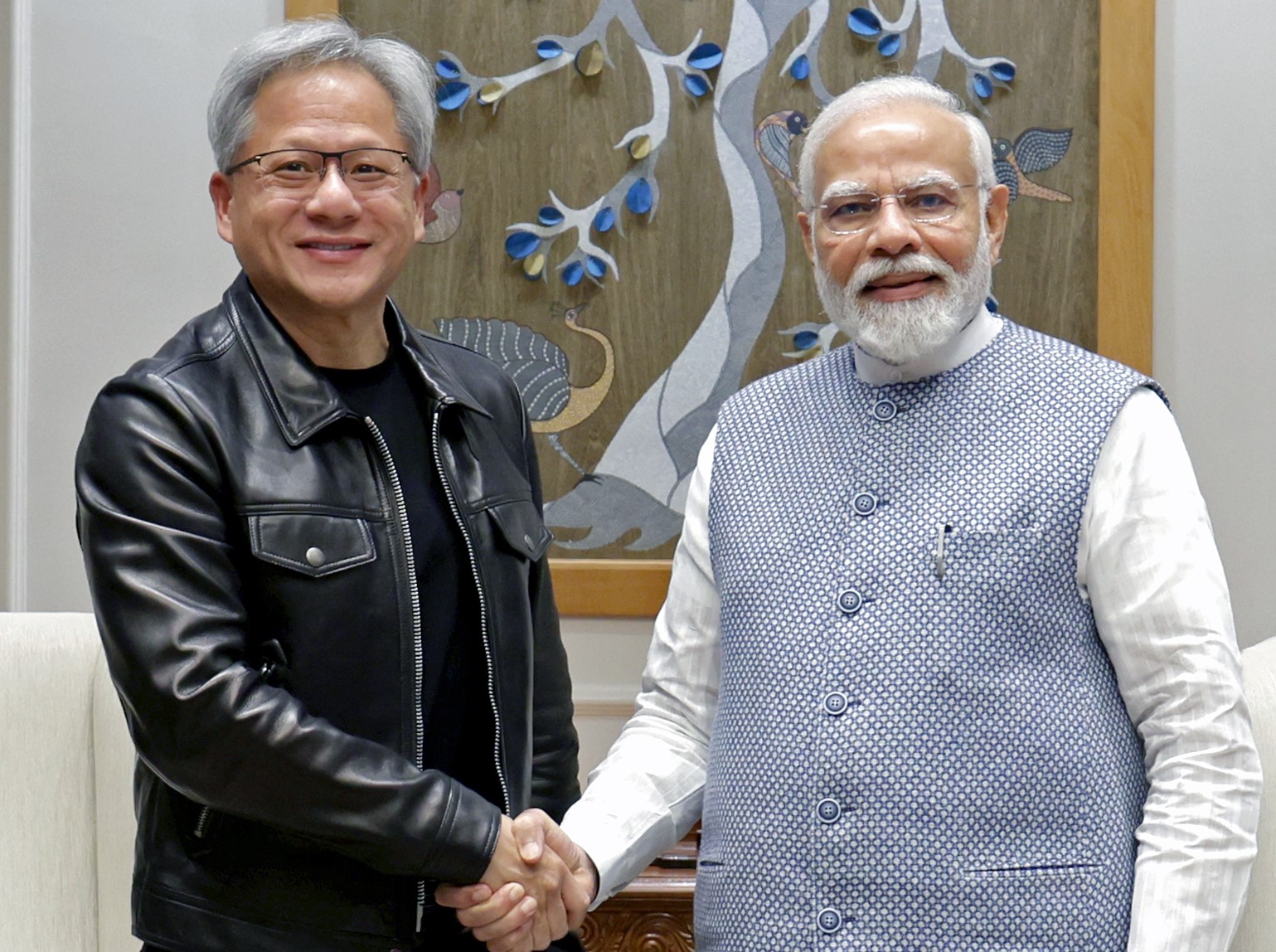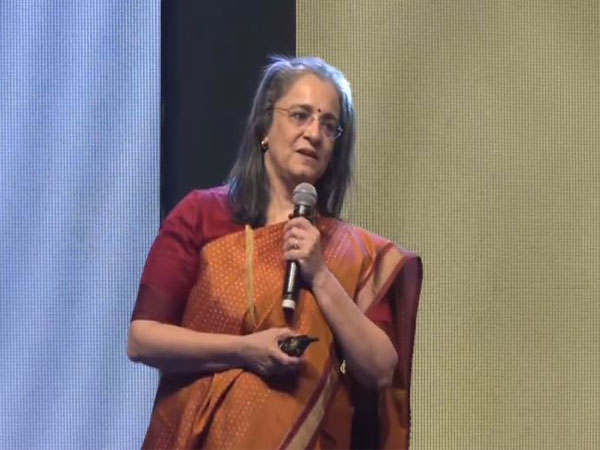Infosys plans to set up an NVIDIA Centre of Excellence, where it will train and certify 50,000 of its employees to provide generative AI expertise to its vast network of customers across industries
Our Bureau
Mumbai
During a five-day tour of India earlier this month, Nvidia Corp chief executive officer Jensen Huang visited four cities, dined with tech executives and researchers, took numerous selfies, and sat for a one-on-one conversation with Prime Minister Narendra Modi about the AI sector.
For Nvidia, whose graphics processors are vital to the development of artificial intelligence systems, the South Asian nation of 1.4 billion people presents a rare opportunity. As the US increasingly clamps down on exports of high-end chips to China and the world seeks an alternative electronics manufacturing base, India could shape up to be a source of AI talent, site for chip production and market for Nvidia’s products.
Nvidia and India have a shared interest in betting on, and speeding up, the country’s AI ascendancy. Chipmakers cannot sell top-end microprocessors to China, which accounts for a fifth of Nvidia’s sales, amid fears the chips could be used to develop autonomous weaponry or wage cyberwarfare.
While Indian engineers are a vital part of the digital workforce, the country is still far away from developing the cutting-edge capabilities needed to manufacture Nvidia’s sophisticated chips. But India has ambitions to boost electronics manufacturing as well as harness AI to buoy its digital economy.
Huang and Nvidia saw signs of that potential during the trip. India’s largest conglomerate, Reliance, owned by billionaire Mukesh Ambani, announced during Huang’s multi-city tour that its Jio Platforms would build AI computing infrastructure for the country. The AI cloud will use end-to-end Nvidia supercomputing technologies, the company said in a release. Reliance and another large conglomerate, Tata, will also build and operate state-of-the-art AI supercomputing data centers and offer AI infrastructure as a service for use by researchers, corporations and startups, Nvidia said, without giving details or sharing timelines.
India wants to catch up, but it faces challenges turning itself into an AI hub. The country currently has no exascale compute capacity — being able to handle a billion-billion calculations per second — nor the ready AI talent capable of writing sophisticated software, said Sashikumaar Ganesan, who chairs the computational and data sciences department at Indian Institute of Science. “We have to build not just AI infrastructure but also high-performance computing workforce,” said Ganesan, who was among those invited to Huang’s meeting with AI researchers.
Also, Infosys, a global leader in next-generation digital services and consulting, and NVIDIA have announced that they have expanded their strategic collaboration with the aim to help enterprises worldwide, drive productivity gains with generative AI applications and solutions.
The broadened alliance will bring the Nvidia AI Enterprise ecosystem of models, tools, runtimes and GPU systems to Infosys Topaz – an AI-first set of services, solutions and platforms that accelerate business value using generative AI technologies. Through the integration, Infosys will create offerings customers can adopt, to easily integrate generative AI into their businesses.
Additionally, Infosys plans to set up an Nvidia Centre of Excellence, where it will train and certify 50,000 of its employees on Nvidia AI technology to provide generative AI expertise to its vast network of customers across industries.
“Infosys is transforming into an AI-first company to better provide AI-based services to our clients worldwide. Our clients are also looking at complex AI use cases that can drive significant business value across their entire value chain,” said Nandan Nilekani, Co-founder and Chairman, Infosys. “Infosys Topaz offerings and solutions are complementary to Nvidia ‘s core stack. By combining our strengths and training 50,000 of our workforce on Nvidia AI technology, we are creating end-to-end industry leading AI solutions that will help enterprises on their journey to become AI-first.”
“Generative AI will drive the next wave of enterprise productivity gains,” said Jensen Huang, Founder and CEO, Nvidia. “The Nvidia AI Enterprise ecosystem is ramping quickly to provide the platform for generative AI. Together, NVIDIA and Infosys will create an expert workforce to help businesses use this platform to build custom applications and solutions.”
Infosys uses the full-stack Nvidia generative AI platform, including hardware and enterprise-grade software to innovate across its business operations, and it is helping customers create generative AI applications for business operations, sales and marketing.


























